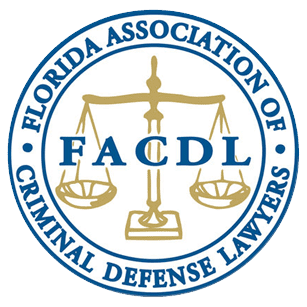If you have been charged with a form of identity theft in Florida, you are probably very nervous about the possible impact this type of offense can have on your life. This crime is always filed as a felony, which means penalties can be severe. Sentences often include huge fines, probation, and the very real possibility of incarceration in state prison.
In such dire circumstances, seeking legal counsel from a Sarasota identity theft attorney like Erika Valcarcel with Erika Valcarcel, Criminal Defense Lawyer, P.A. may be your best recourse. With time in her career spent as both a prosecutor and a defender, she can use her experience to craft a strong defense strategy to combat the prosecution’s case against you. Whether it involves pointing out rights violations or conducting an independent investigation, attorney Valcarcel will strive to get your charges reduced or dismissed.
Call (941) 363-7900 today to see how you can avoid the harsh consequences of an identity theft conviction.
Florida Identity Theft Laws
According to Florida Statute, identity theft is the crime of stealing another person’s identity for the purpose of obtaining funds, credit, credit cards, applying for loans, establishing accounts, leasing vehicles, and even finding employment. While it is hard to believe, identity theft is also used to commit crimes. A criminal trying to rob a bank, for example, might assume another identity before going through with their plan. That way, the victim will be blamed for the crime. Any identifying information can be used to commit identity theft. Information that is commonly used for this offense includes, but is not limited to:
- Name
- Telephone number
- Date of birth
- Mother’s maiden name
- Driver’s license number
- State identification number
- Any other piece of information that can be used to identify a person
Penalties and Collateral Consequences
The crime of identity theft is always filed as a felony, but the severity of criminal consequences depends on two factors: the value of the property (or funds gained) and the number of people that were defrauded. When the value of the property stolen or obtained is between $5,000 and $50,000, or when 10 to 19 people are affected, the crime is classified as a second-degree felony. When more than $50,000 is gained or when more than 20 people are impacted, the offense is filed as a first-degree felony. Criminal consequences for identity theft include, but are not limited to:
- Identity Theft (Second Degree Felony): Up to $10,000 in fines and up to 15 years in prison
- Identity Theft (First Degree Felony): Up to $10,000 in fines and up to 30 years in prison
A criminal conviction also has collateral consequences that can haunt you for life. Finding a job once you are released from prison, for example, might be all but impossible. Few employers jump at the chance to hire someone with a criminal record. Your attempts to continue your education might also be stifled, as most colleges and universities thoroughly vet applicants before admitting them. What’s more, most scholarships are off-limits to those with conviction histories.
Defenses Against Identity Theft
One of the keys to mounting a successful defense against identity theft charges is seeking the help an experienced attorney. They can employ a number of strategies to get your charges thrown out in court. One of the most effective defenses in these cases is claiming that you are a victim of mistaken identity. You may have been falsely targeted because you and the perpetrator share similar traits, such as name, ethnicity, or general appearance. It might also be the case that you are being falsely accused because the supposed victim has something to hide, such as loans that they applied for illegally.
Let Valcarcel Protect Your Freedom
An identity theft charge can wreak havoc on your life. From a ruined career to altered relationships with loved ones, there is no area left unaffected. Sarasota theft lawyer Erika Valcarcel knows the turmoil that can arise in these situations and knows how to help. She believes the key to an effective defense is getting to know you and listening to your side of the story. When all of the details are gathered, your case can be presented in the best possible light.
Call (941) 363-7900 now to see how your freedom can be protected during a free and confidential consultation with a Sarasota, FL criminal defense lawyer.


